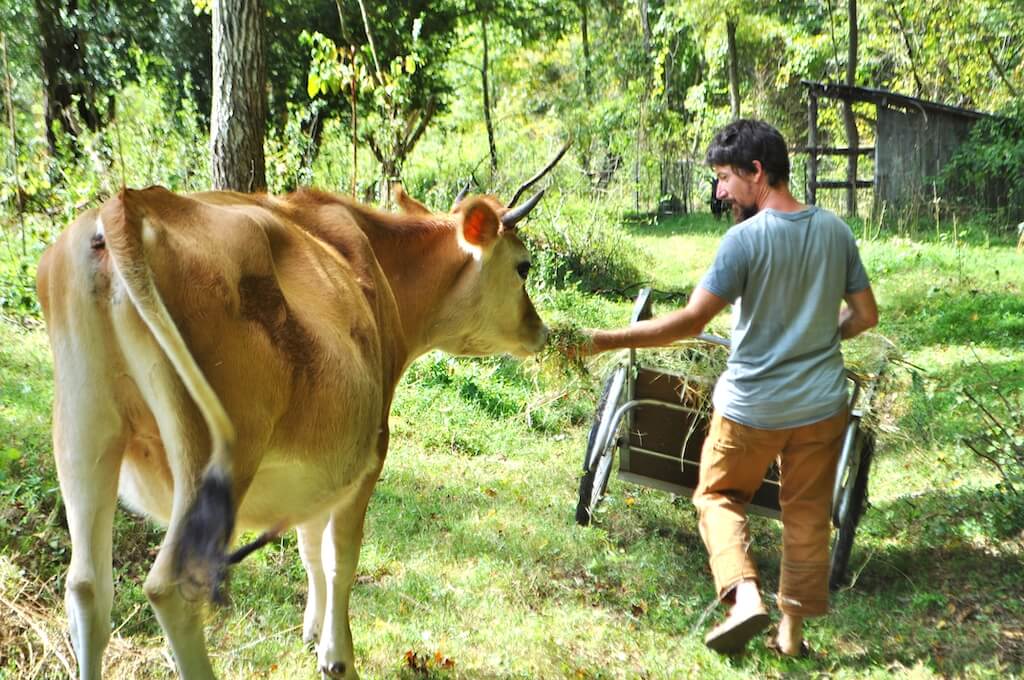You can raise your own eggs, milk, meat, and more, even in a moderately-sized backyard. Indeed, animals are an important part of land-based living and food security for many people. Along with edible gifts, animals provide other services, too. From manure fertilizer, to help with weed management, to the joy of relationships, small-scale livestock can enhance your life and contribute to your overall sustainability in wonderful and rewarding ways. However, animals are also a huge responsibility and a lot of work. Not to mention, if you make mistakes or neglect animals, they suffer in ways that are quite tangible and heart-wrenching.
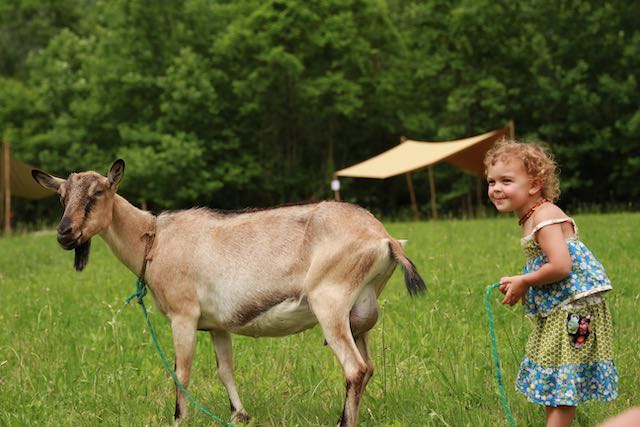

In order to help you get started on the right foot, we’ve put together this list of reality checks for raising animals. These are questions to ask yourself before you say “yes” to you kids when they beg you to buy the peeping chicks at the store. Your answers will help guide smart decisions that can lead to balanced, healthy, reciprocal relationships with the animals you choose to care for.
How much time can you dedicate to animal care?
Animals need daily care. This can mean something as simple as feeding chickens in the morning, collecting eggs, and closing up their coop at night, or something as complex as milking twice a day, bottle feeding babies, and doctoring sick animals. If you skip a day, or arrive home late one evening, the result may be that your animals get eaten by predators, or they fall sick from mastitis. Ask yourself how much time you have to care for animals daily? Do what you need to do to give yourself a truly honest answer.
Taking a vacation is also a little trickier with animals. It can be helpful to create a network of supportive friends and neighbors who are excited to care for your animals while you’re away. Unlike a garden, you can’t just leave for a few days and hope for the best when it comes to raising animals.
What will you feed these critters?
This may seem like an obvious question, but the answer is not so cut-and-dry. One important consideration is this: the quality of what you feed your animals translates to the quality of what they provide for you. For example, chickens fed a diet that’s high in omega-3 fatty acids produce eggs with as much as 5x the omega-3’s as those that aren’t. On the other hand, when dairy animals are given feed that’s laden with pesticides, residues of these chemicals can show up in the milk. What you feed your animals matters.
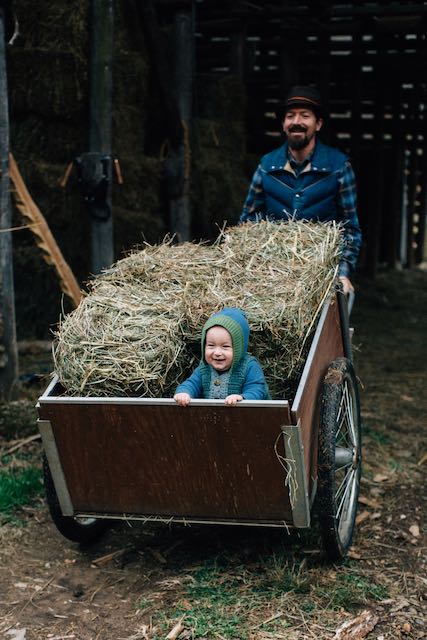

Here are some feed-related questions to help you find clarity:
- What exactly will you feed? This will likely be a combination of purchased feed, supplements like salt and other minerals, kitchen scraps, pasture, etc. Determine what an ideal balanced diet is for the animals you’d like to raise, then inventory what you’ve got access to.
- Where will you get your feed? Especially if you’re hoping to raise your animals with certified organic feed (recommended), you may need to shop around. Not all feed stores stock organic products. Some feed mills offer buying co-ops with monthly pickups in areas where organic feed may not be available commercially.
- Where and how will you store your feed? Newsflash: rodents love grain! And…rodents are excellent sniffers and chewers. You’ll need to keep any grain-based feed sealed containers in order to deter hungry critters. If you’re enticed by lower prices on bulk feed purchases, keep the storage question in mind so you don’t end up wasting the bulk feed that you saved a few bucks on. Plant-based feed like alfalfa pellets and hay won’t be so appealing to rodents, but can be damaged by moisture. Keeping food dry is important!
Where will your animals live?
Your animals will need a home that keeps them warm, dry, clean, and happy. Appropriate housing impacts the animals physical and emotional wellbeing. Did you know that chicken coops with poor ventilation can result in lung infections and even death for the chickens within? Also, goats have no subcutaneous fat, and if they get wet when the weather is cold, they can easily get pneumonia and die! Their home doesn’t just include the physical house or enclosure they occupy, but the conditions in their area, too. For example: ducks require water for health, happiness, and hygiene, whereas chickens like to bathe in dust and need dry conditions to thrive.
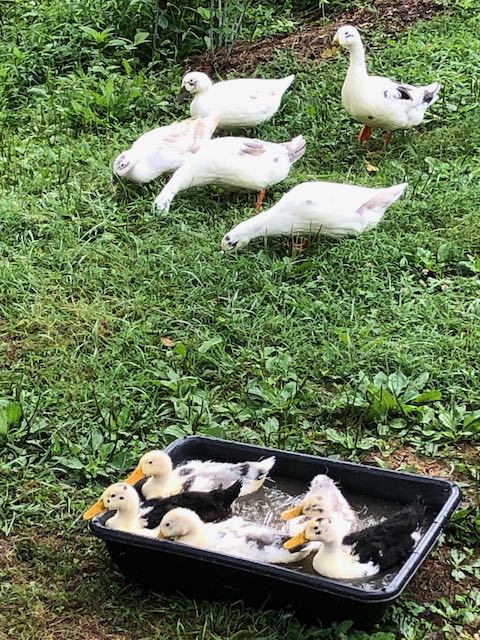

Whether it’s a simple shed or an artsy animal palace, the housing you provide for your animals will be a part of your landscape, too; you’ll be looking at it and interacting with it daily. That’s why it’s worth the effort and expense to create a home for your animals that is functional, sturdy, and also aesthetically pleasing.
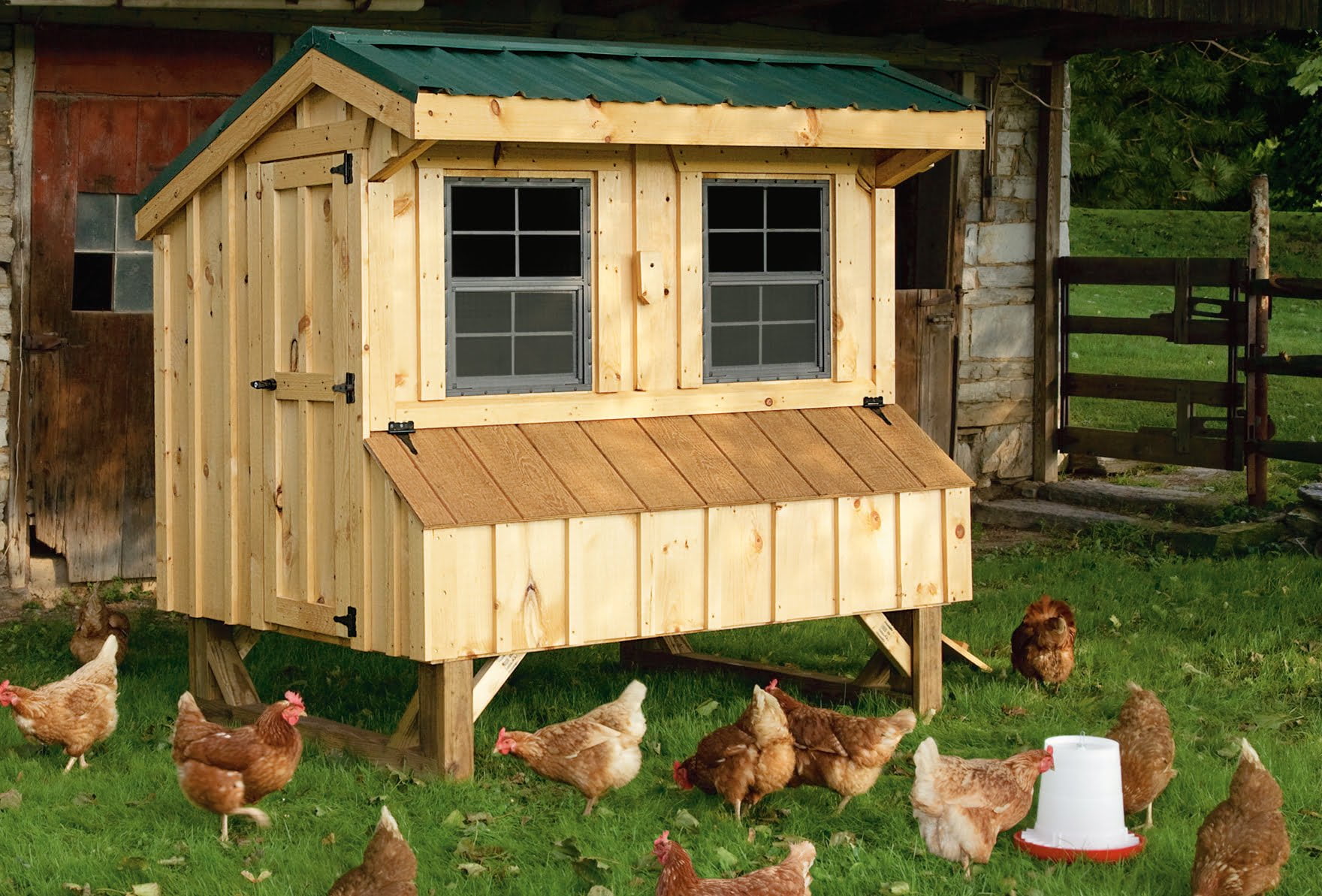

photo credit: Amish Barn Company
Learn to More About These Skills in the PDC!
Join the waitlist and be the first to know when new classes open up for registration!
We’ll let you know when classes open for registration, and send you our fun and informative newsletters.
How will you keep your animals in their appointed area(s)
Some animals can free-range successfully, but it’s likely that you’ll be using at least some fencing. If you’ve got a vegetable garden, orchard, a busy road nearby, predators, or neighbors, you’ll need a fence that really works. Ideally, you’ll create a fence that keeps your animals in or out effectively, with minimal effort on your end. That same fence should keep out any predatory animals that might come to snack on your friends. Finally, if you plan to rotate your animals, choosing a fencing option that is easy to move is critical.
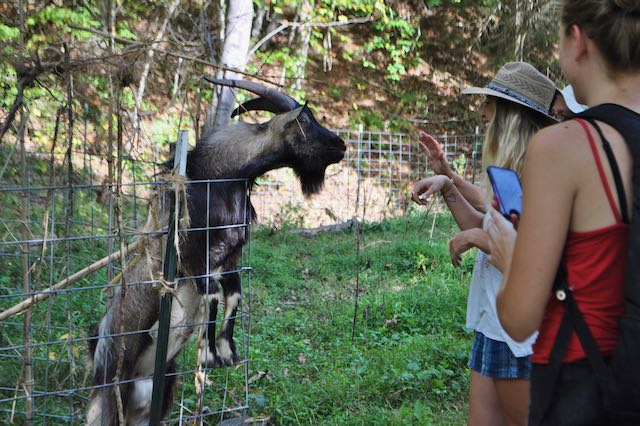

Different animals require different things when it comes to fencing, and there are a lot of options out there. Look into the specific needs of the animals you’d like to raise before you invest in fencing. And invest you will! It’s absolutely worthwhile to spend some money on good-quality fencing so that you don’t have frequent jail-breaks or invasions.
Will you be breeding these animals? If so, how?
This question is especially geared toward raising dairy animals. If you want to harvest milk, you’ll need to make babies. Ultimately there is only one way to do this, but there are a couple of avenues available for livestock owners. You can either use a stud at your place, bring your animals for stud service, or hire someone to do artificial insemination (AI). All of these options require an intact male of the particular species and breed that you desire. For successful AI, some specialized equipment is needed that’s impractical for a small producer to own.
Before you decide on a breed of dairy animal, look into the availability of stud/AI service in your local area. If you plan to raise a stud yourself, you’ll need to have a separate area for him and a very, very sturdy fence if you plan to only breed selectively.
How much of these animal products do you need/can you handle?
How many eggs does your family eat? How much milk and meat? Get a clear sense of how much of your animal’s produce you can handle, and let that inform how many animals you get. As a quick reference, a dairy goat produces between ½-1 gallon of milk every day; a cow between 2-6 gallons. A hog will produce over 100lbs of meat. Be realistic about how much space you have to store what your animals provide, and how much time you have to process and prepare it. Eggs are the easiest in this area, as they come in their own individual packages, and are very easy to sell, trade, or share.
Keep in mind that animals don’t just produce what you can eat. They also poop. Manure management is crucial for a sustainable animal operation. Get real about how much poop your animals will make each day, week, and month. Then, make a solid plan for transforming it into black gold instead of cultivating flies and disapproving neighbors.
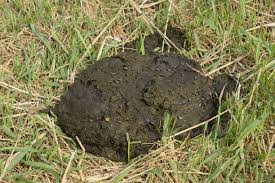

Is it legal to raise livestock in your neighborhood?
It may or may not be legal to raise farm animals in your neighborhood. Some laws that impact livestock include: zoning laws, nuisance laws, animal welfare laws, and public health laws. Particularly if you live in a subdevelopment, animals may be completely banned. Some cities allow for certain kinds of animals, but not others. In many cases, there is a maximum allowable number of animals per household. Donkeys and guinea hens tend to be very unpopular in densely populated areas due to noise. To learn more about laws regulating livestock, check out the Urban Agriculture Law Center here. To explore specific regulations in your area, contact your local zoning board, department of agriculture, and/or city planning office.
Is there a local vet who can help you if problems arise?
Good animal husbandry practices will hopefully lead to healthy animals. However, issues may pop up with sick or injured animals. In these cases, you’ll want to have a local vet on hand to call with questions, or hire for services. In addition to official veterinarians, experienced folks who’ve been raising animals for years can also be of great help. Check out what’s available in your area and begin to build a network of support so that you can get guidance on caring for your animals when trouble arises.
